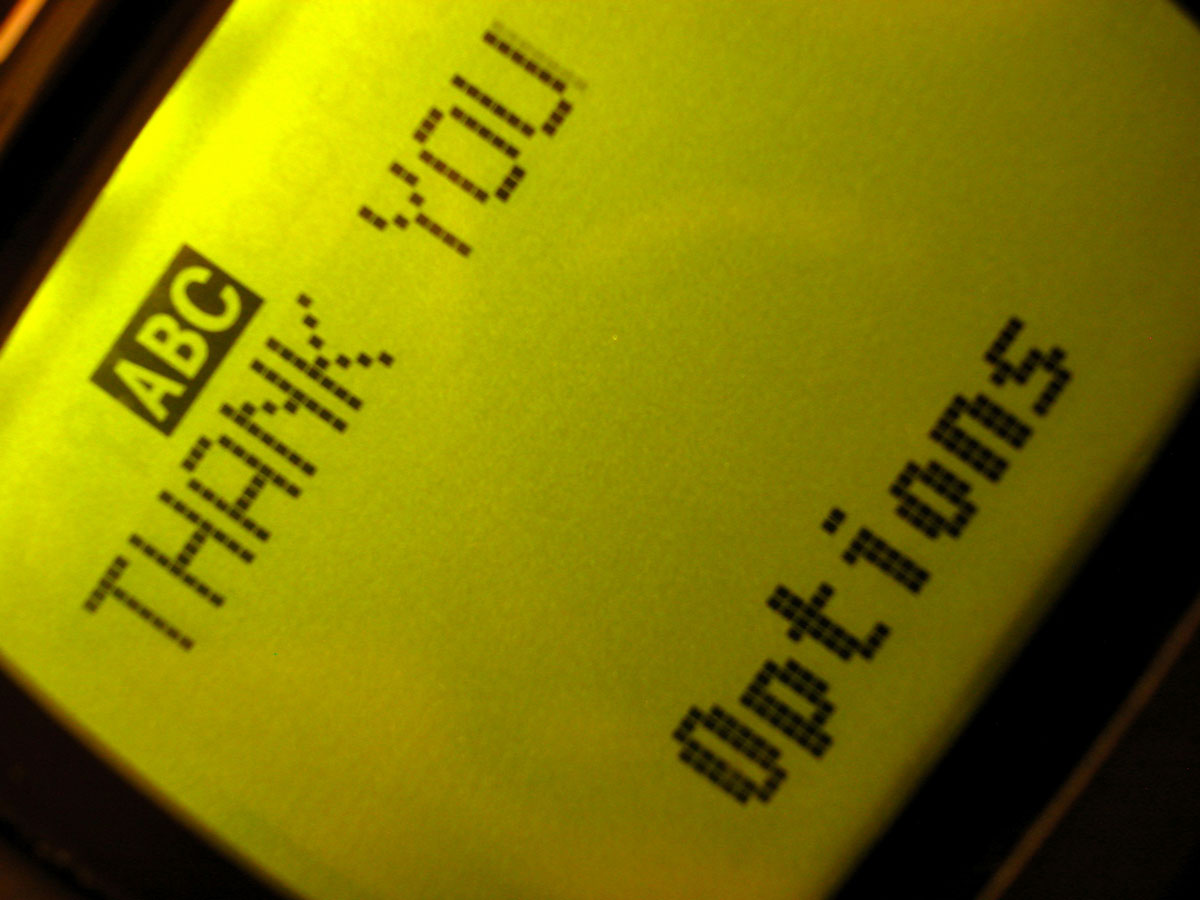More Email Etiquette
By Wayne Maruna
I first wrote on the subject of email etiquette back in October of
2005. I was channeling Andy Rooney at the time and took on the
persona of a curmudgeon (not hard for me to do) to air my gripes about
people’s most annoying email habits. If you weren’t in Taberna in 2005,
you can catch up with the article here: http://pages.suddenlink.net/wamaruna/FastFwd.html.
This time we’re going to take a different view of email
etiquette. A question was posed to me asking when a sender of an
email should reasonably expect an answer to their email, and from the
flip side, when is a recipient expected to answer or disregard?
Since there is no “10-4” or “Over and Out” like there is in radio, how
do we know a message was received?

In truth, my initial reaction to this question was “What, do I
look like an electronic Emily Post or Miss Manners?” There is
good reason why etiquette books are written by women. The subject
is usually a FAIL for any man not wearing top hat and tails, especially
this writer. But since the question came from my Taberna Tribune
editor, I figured it was in my best interest to formulate an
appropriate response.
It is true
that emails sometimes fall prey to overeager spam filtering.
I’ve read that as high as 40% of emails never make it to their intended
recipient. Since it is not obvious to the sender whether their
email has gotten through, it is indeed a good idea to let the sender
know you have received their message, even if a reply is not
necessarily required. And if the sender has asked for some information,
it really is proper to send a response, even if only a short one to say
that more information will be forthcoming. When in doubt, err on the
side of too much communication. When you do send an
acknowledgement, keep it brief, and refer to your sender by name.
Dr, Marianne Di Piero, the Director of the Graduate Center for
Research and Retention at Western Michigan University, has written on
professional email etiquette. She says that in a business or
professional environment, you should acknowledge email receipt within
48 hours. My view is that while that might fly in academia, it is
twice as long as what would be remotely acceptable in the business
world. I spent 40 years in business, and most of the people I
dealt with, myself included, were type A people who expected responses
to be darn near immediate. And if you were prescient and could
answer a question even before it had been asked, all the better.
If you did not have a ready answer, a very timely reply promising
near-term follow-up would usually set such folks off down some other
path, making unreasonable demands on some other poor soul.
When you send off an email to a customer support site, chances
are you come back and check your email frequently until you finally get
a reply, even if it is only to tell you they are looking into the
matter. The golden rule applies here: do unto others as you would
have them do unto you.
There are some
email programs where you can flag an outgoing email so that when the
recipient opens it, they are asked to approve a notification back to
the sender acknowledging receipt. This would be OK if the
practice were restricted to only highly important, time sensitive
emails. But I have one relative who asks for verification on
every email sent. I always respond NO just so it irritates her as
much as her verification requests annoy me. Retribution may not
be proper etiquette, but it sure can feel good.
Now, if you are getting emails from the town Spaminator who
forwards every joke, picture, and political view he/she receives to a
long list of recipients, you are absolved from being required to
respond. Instead, I would say this: ask yourself, do people view
me as a Spaminator? If the answer is yes, please send out a group
email asking if the recipients would like to be removed from your
distribution list. My guess is most of them would but are too
polite to tell you so. Instead they just automatically delete
anything they get from you. Don’t be a Spaminator, even if you
can talk like Ahnold. Proper etiquette demands that you be considerate
of your recipients.
